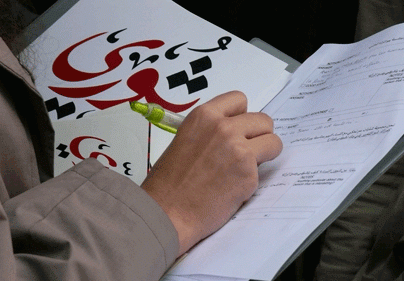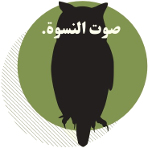
I have no idea. And yet I went down to Dawra and Bourj Hammoud on Sunday with a few of my feminist friends to talk to migrant women in Lebanon about the problems they face. It was the second day of “Hello Women,” a project we devised for International Women’s Day, where we stationed ourselves on the streets of 15 Lebanese cities and villages to ask women what they thought of women’s rights. In Dawra and Bourj Hammoud on Sundays, hundreds of migrant women go out shopping – the small percentage of them who actually get a day off on Sunday and can leave the houses where they work. And so we decided we needed to talk to them about their issues, primarily so that we, as Lebanese feminists, learn more from their experiences, and so that they, as migrant women, can learn about our different initiatives that support them.
From the beginning of the idea, some of us felt an unease towards the endeavor. Why, we were not entirely sure. But there was something about the dynamic of us going to meet the migrants, to talk to them in English and Arabic, to ask them about their problems, that made us a little hesitant. We already knew that dozens of them were dying from suicide or murders every year and we knew that almost all of them faced severe racism and abuse every day. We knew that many of the women would refuse to talk to us about their problems. We were, after all, Lebanese, and nothing about that warranted their trust. And we had little to offer except free language and computer classes and embarrassment for our racist people.
But we went down anyway. And little did we know that one particular woman would explain to us exactly why we were feeling so uncomfortable.
The markets were very crowded. More women stopped to talk to us than we had expected and every one of them had plenty to say about discrimination. I spoke to around 50 women from all sorts of nationalities. They shared the same problems but their stories were unique. Two women told me it was the first time they had left the houses where they worked in months. A group of four Filipino women said they could not fly home for holidays because of the travel ban. One Sri Lankan woman told me her niece has been jailed in Lebanon for over a month because her employer refuses to finish her paperwork and let her leave.
But none of these encounters prepared us for the intensity of meeting Nana, a middle-aged Sri Lankan woman who has been working in Lebanon for over 25 years and spoke better Arabic than me. I introduced myself to her and asked her what she thought were the challenges facing migrant women. She looked at me skeptically, asked if I was Lebanese, said something to her friend, looked at me again silently for a few seconds, and then said: “Ok, I will tell you about problems.”
Nana had brought her daughter to Lebanon a few years ago to find work. Her daughter was recruited to work in the house of a family in Sin el Fil. Immediately, the abuse started from her employers. Less than one month after she had started work, she jumped from the balcony in an attempt to escape. She broke her legs, her front teeth, and suffered a bad head injury. The family refused to shoulder any responsibility or even allow her to receive proper medical care. Nana had to fight them fiercely on her own to sign the papers to allow her daughter to return to Sri Lanka to recover. “She is your maid,” she screamed at the Madame, “but she is my daughter. That is my daughter.” Her daughter eventually returned to Colombo in a wheelchair and till today suffers mental illness as a result of her trauma in Lebanon.
Nana finished her story and looked at me for another few seconds. “Are these ‘problems’ to you?” she asked, mocking my initial question. “Are these problems good enough for you?”
Publisher:
Section:
Category:






